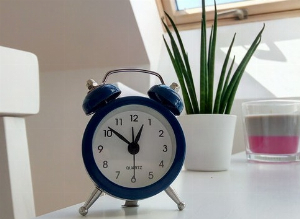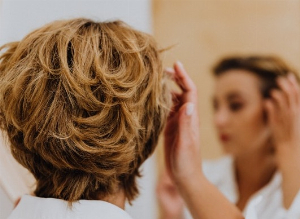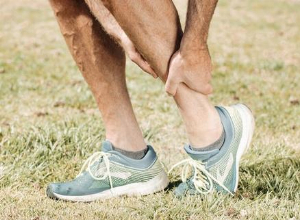Sleep disorders: Carenity members share their experience!
Published 19 Mar 2021 • By Candice Salomé
It is not uncommon to feel tired or sleep-deprived after a night of non-restorative sleep. This feeling can be temporary or can become chronic. In the UK, it is thought up to one third of the general population may suffer from a sleep disorder.
But what are the different types of sleep troubles? What causes them? What can we do to sleep better?
To answer these questions, we surveyed Carenity members in France and in the United States. 568 members responded to our survey!
Discover the results below!
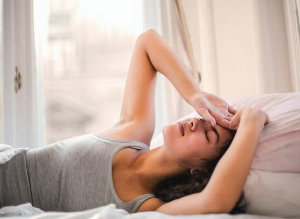
We spend almost a third of our lives sleeping. Sleep is crucial for many biological functions: memory and learning, metabolism, immunity, and more! However, sleep disorders affect a significant proportion of the population and this figure is on the rise.
568 members responded to our survey in France and in the United States
We conducted a survey from March 2 to 15, 2021 in which 568 Carenity members in France and the United States participated. We asked them questions about the quality of their sleep.
The majority of respondents were aged between 46 and 55 years old (31%) or over 55 years old (42%).
The majority of respondents (88%) are affected by a chronic illness:
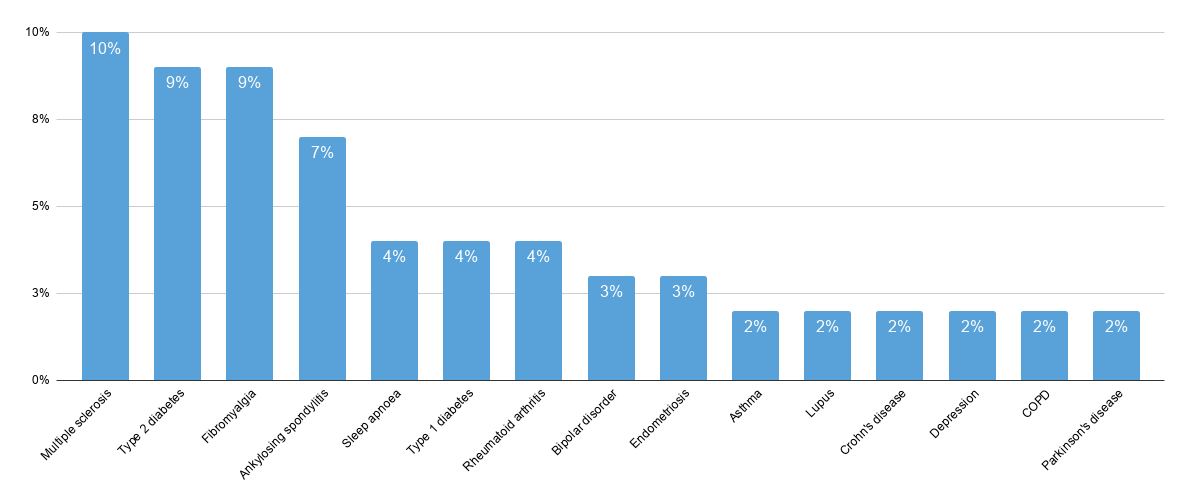
Many Carenity members have trouble sleeping on a regular basis
87% of the Carenity members surveyed struggle with a sleep disorder.
In France and the United States, 56% have trouble sleeping every night and 35% have trouble several times a week.
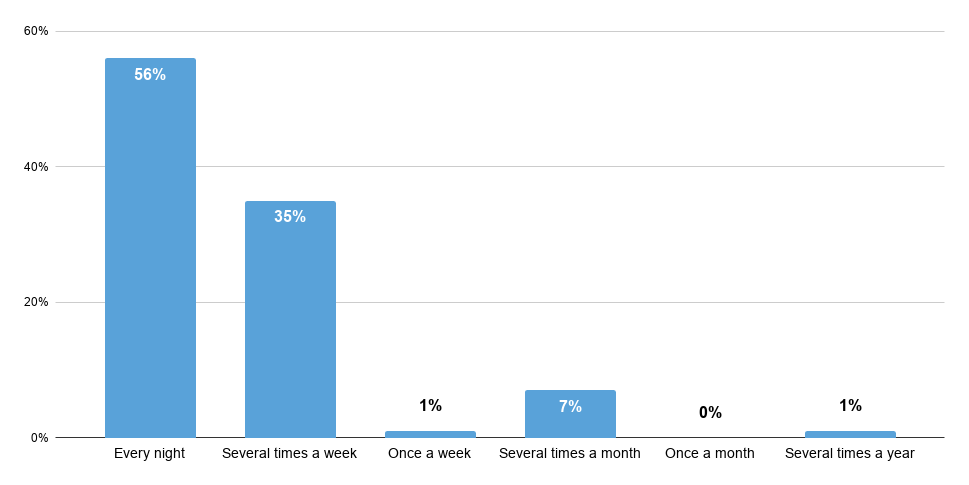
Members cited the following causes of their sleep issues:
 Their stress (56%)
Their stress (56%)
 Their chronic illness (46%)
Their chronic illness (46%)
 Their medication (16%)
Their medication (16%)
Lack of sleep can have significant consequence on a person's daily life. Here's what some Carenity members had to say about it:
"During the day I feel tired, I have trouble performing complex mental tasks, my morale is low and I feel impatient and irritable".
"I fall asleep at the wheel, I have trouble concentrating and have memory issues".
"I am awaiting diagnosis for rheumatoid arthritis or/and fibromyalgia... The fatigue is hard to manage in the day-to-day and causes me to lose focus. I'm less alert and experience memory loss".
"I have two or three nights a week where I sleep relatively well, but only because the accumulated fatigue throughout the week eventually makes me fall asleep".
"I constantly feel tired and can't focus. I feel sad, I procrastinate, I have a hard time accomplishing simple daily tasks or even leaving my house. I'm constantly irritable and have mood swings".
To sleep better, 31% of respondents take sleeping pills or sedatives, while 18% use natural remedies and 17% use dietary supplements like melatonin. However, the majority of those surveyed (32%) do nothing to fight their sleep troubles.
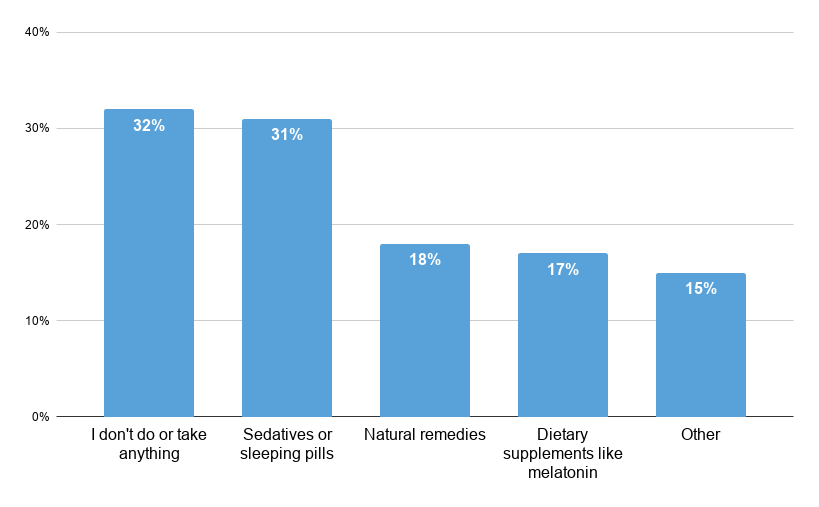
For the members who answered that they use "Other" methods, they mentioned using:
- Anti-anxiety drugs,
- Mood stabilisers,
- Antihistamines,
- Cannabis,
- Self-hypnosis,
- Sophrology,
- Meditation,
- Reflexology,
- Self-massage of painful areas,
- Reading,
- Listening to relaxing or Zen music.
What advice do experts give to help us to fall asleep easier?
Reduce blue light exposure in the evening
The blue light produced by phone screens, computers, televisions and tablets hinders the production of melatonin (the sleep hormone). Thus, exposure to blue light between 9pm and 11pm can shorten one's night and cause poor quality sleep.
To solve this, try to stop watching TV and turn off any bright lights and screens 2 hours before heading to bed
Take a warm bath before bed
The Sleep Medicine Review journal reveals that people who are used to taking a warm bath 1.5 hours before going to bed fall asleep more quickly.
Every evening, our body temperature must drop to release melatonin, the hormone that triggers sleep. The 1.5 hours before bedtime is important to follow, because it is not the hot water that helps people fall asleep, but the drop in body temperature that occurs upon leaving the bath.
Sleep on clean bedding
Our bedsheets absorb body secretions and retain dead skin cells, which are highly prized by dust mites. Dust mites can cause allergies that interrupt sleep, so make sure to change your sheets once a week.
Take care of your diet
Certain foods can help us to fall asleep more quickly. This is the case with fibre-rich foods such as lentils, brown rice, wholegrain cereals, peas and fruit and vegetables.
Exercise
Regular physical activity (2 to 3 sessions per week) can improve your sleep quality. However, the results are only significant after 8 weeks, so you may need to be patient.
Carenity members' tips for better nights
We asked our survey participants to share their advice for getting better sleep, here's is what they advise:
"I put lavender essential oil on my pillow and Marjoram essential oil around my wrists. The sophrologist who comes over from time to time gives me a little Bach flower cocktail for more regular sleep, fewer nightmares and negative thoughts".
"To all the people suffering from sleep disorders, I recommend plants: chamomile, lime or valerian... It's not miraculous but it helps! If you nap, don't nap for more than 30 minutes, otherwise your night will be disrupted, even more so if you're not very active".
"I need a lot of sleep and this is what helps me: I meditate at the end of the day using videos on YouTube. There huge selection of videos, right now I'm following mindfulness meditation videos. Maybe start with a short meditation for those who are just starting out... It's very calming!".
"To get better sleep, I bought an ergonomic pillow, which really take a lot of pressure off of my neck".
Was this article useful?
Share your thoughts and questions with the community in the comments below!
Take care!
Sources:
- Data taken from a Carenity survey performed from March 2-15, 2021 on Carenity France and US.
- Sleep Matters: The impact of sleep on health and wellbeing, Mental Health Foundation
- Les 10 bonnes habitudes à adopter, Fondation Sommeil
9 comments


 Facebook
Facebook Twitter
Twitter



